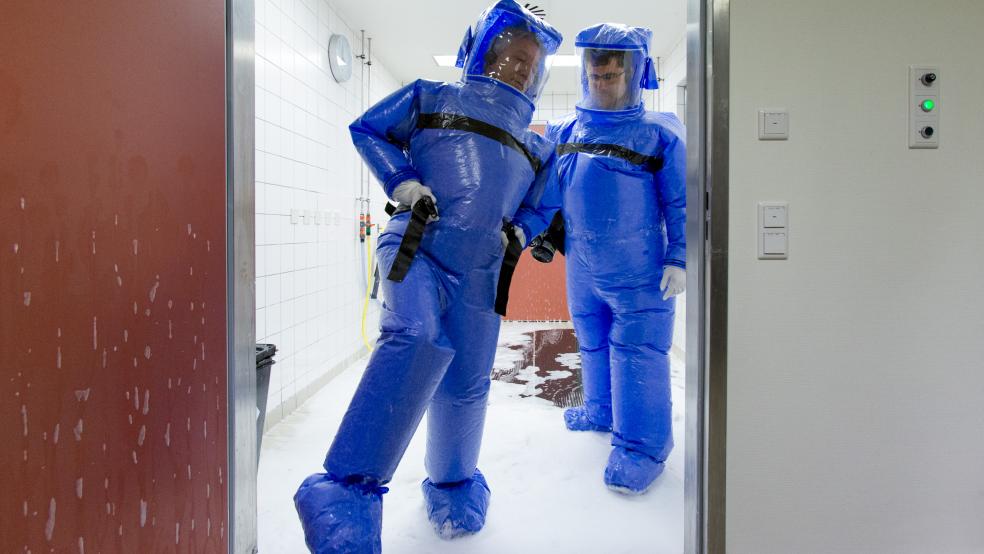Federal health officials are “deeply concerned” after a Texas health care worker tested positive for Ebola treating Thomas Eric Duncan, the U.S.’s first victim of the deadly virus who died last week.
Speaking on CBS’s Face the Nation on Sunday, Tom Frieden, the director of the Centers for Disease and Control confirmed the second case of Ebola in the U.S. He added, "Unfortunately, it is possible that in the coming days we will see additional cases of Ebola.”
Related: Ebola Patient Needs $500,000 to Cover Medical Bills
Frieden said that although the United States is capable for caring for Ebola patients here without risking the spread of the virus, the Texas hospital that treated Duncan likely did not follow the proper procedures resulting in the transmission of the virus to the health care worker who had “dealt with Duncan on multiple occasions after his diagnosis.”
“Clearly there was a breach in protocol,” Frieden said. “We know from many years of experience that it’s possible to care for patients with Ebola safely without risk to healthcare workers, but we also know that it’s hard and that even a single breach can result in contamination.”
Officials said the health care worker –who has not been identified--is in stable condition and others who had contact with him are being monitored closely for symptoms.
“Our team is intensively working with the hospital on both understanding what happened and to find other healthcare workers who may be at risk and also making sure that protocols are followed in the care of this individual,” Frieden said.
Related: The U.S. is Trying to Stop an Ebola Pandemic
The second Ebola diagnosis in the United States comes as the federal government is ramping up its efforts to prevent a deadly outbreak here. Last week, the Obama administration ordered five major airports—Dulles in Washington, D.C., JFK in New York, Newark’s Liberty, Chicago’s O’Hare, and Hartsfield-Jackson in Atlanta—to screen passengers coming from West Africa to detect any passengers who may be infected with the virus.
Meanwhile, a handful of lawmakers on Capitol Hill have been urging the president to enforce travel restrictions on Ebola-stricken West African countries.
However, administration officials and health experts have been quick to dismiss that idea saying canceling flights and preventing travel in and out of those countries would severely hinder the response to quell the pandemic in West Africa.
Dr. Anthony Fauci, the top infectious disease specialist at the National Institutes told Chuck Todd on NBC’s Meet the Press that travel restrictions would be “counterproductive,” adding that the only way to stop the spread of Ebola around the world is to kill at the source.
“If we could completely suppress the epidemic in Africa, we wouldn’t have this problem today,” Fauci said.
So far, Ebola has killed more than 4,000 people—with the majority in the West African Countries of Liberia, Sierra Leone and Guinea.
Top Reads from The Fiscal Times:





